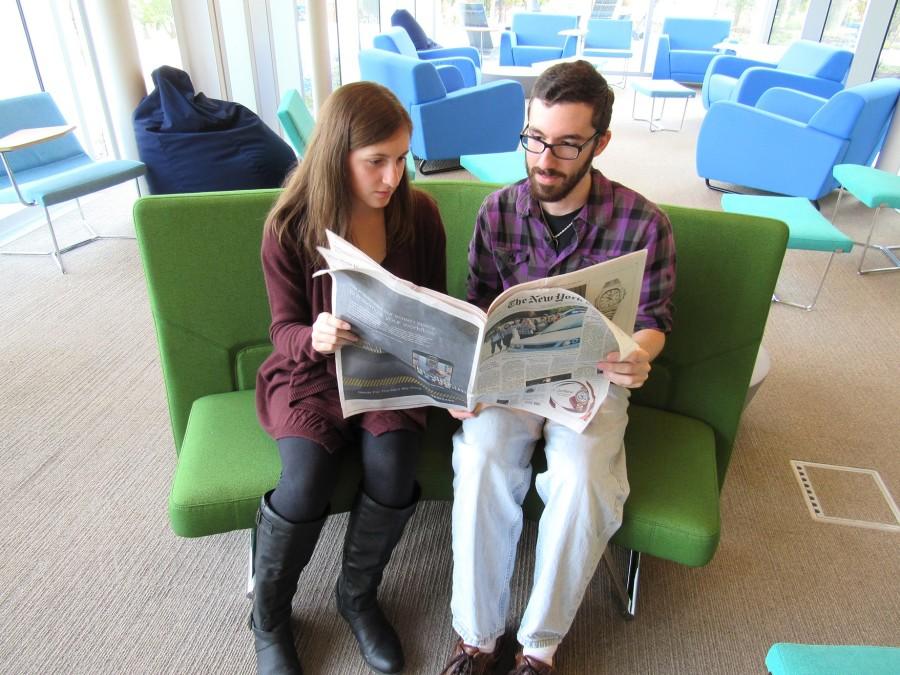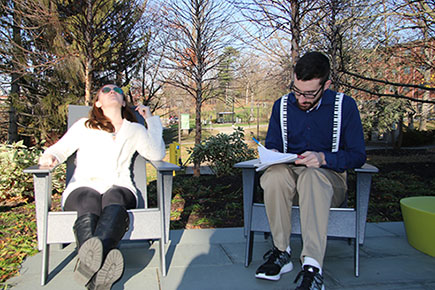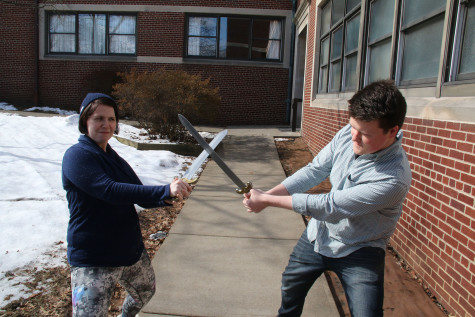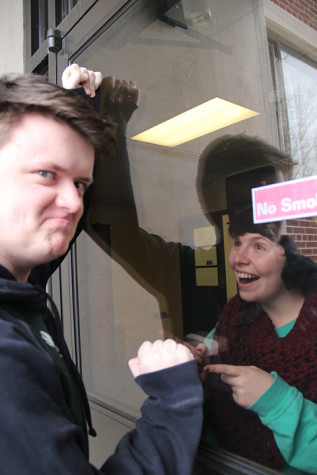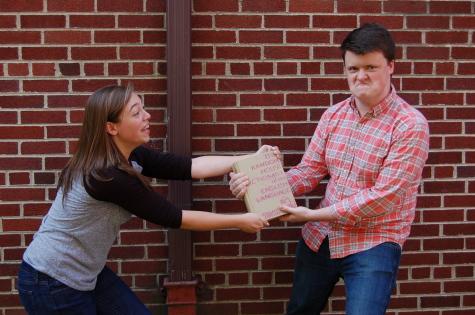He said, she said: Mental health, guns need attention
Photo credit/ Brigid Sabine
October 18, 2015
He said: Gun control an issue we need to solve
On Oct. 1, nine people were killed while another nine were wounded in a shooting at Umpqua Community College in Roseburg, Oregon before the shooter took his own life in an ensuing gunfight with police.
As reported on NBC, as of Oct. 2, the shooting in Oregon was the 41st school shooting this year. There have been 142 incidents of gunfire on school campuses since the Newtown shooting in Dec. 2012.
It’s about time we realize that we need to stop the losses of too-often-too-young lives.
Congress has made it clear through inaction that the issue of gun control is not a priority. It is too difficult to fix, it is too challenging, people have all different opinions, they say. Cowered by the threat of the electoral power of the National Rifle Association (NRA), Congress does nothing. But a lawmaker’s job has never been easy, and to stop short of saving lives by simply installing a system of checks and balances is sickening.
There should be restrictions on the kinds of firearms and ammunition sold. While Americans nationwide jump out of their seats at such a notion, to say one needs such firearms as assault rifles is utterly stupid.
No one needs an automatic weapon to shoot a deer for sport. No one needs a high-capacity weapon to provide for one’s family. And no one needs an military-grade weapon to have fun.
The idea that guns are toys and status symbols needs to end. The assault rifle being carried around by every hearty gunslinging target-shooting American who thinks he or she cannot function without it ought to figure out what he or she really cannot live without; and that is public safety.
Furthermore, the idea that more people owning guns will prevent or minimize the damage done in these attacks is also illogical. Optimism in untrained civilians’ accuracy, in citizens’ mental stability to own firearms while, again, being unscreened, and proposing everyone constantly carrying firearms are sad alternatives to modifications to current law.
No one is taking away anyone’s Second Amendment rights; we can all still defend ourselves, just far more sensibly.
Saying gun control is the solution to all of our problems would be absurd, but it is a very promising starting place. This is not one person’s problem; this is a problem for every American. And until it is solved, our society will continue to be that much more dangerous.
Contact the writer: [email protected]
She said: Break the mental health stigma
On Oct. 1, a shooter at Umpqua Community College in Oregon violently ended the lives of eight students and one professor. This news left some shocked. Some blame guns, while others blame a generally aggressive culture.
In the past, the American Psychological Association has reported findings that prove there is a connection between violence in the media and violent actions. A 2003 report included the findings of a study, titled “Longitudinal Relations Between Children’s Exposure to TV Violence and Their Aggressive and Violent Behavior in Young Adulthood: 1977-1992.” Subjects did exhibit more violent traits when exposed to certain degrees of harmful actions.
Although there is evidence that the media’s use of violence is harmful to youth, we must stop blaming and start solving.
We need to be proactive in order to prevent tragedies like these from happening by breaking down the stigma attached to mental illness.
CNN reports that the Umpqua shooter had dealt with mental health issues in the past. The New York Times mentions that the other shootings following that of Umpqua were fueled by anger.
Although there is no excuse for what these people have done, it should serve as a message to us that any type of violence, whether to oneself or others, is not a solution.
Proper treatment and support is a solution. The National Alliance on Mental Illness (NAMI) estimates 60 percent of people dealing with mental health issues go untreated.
It is not a disgrace to ask for help or to encourage others to do so.
Most people who are dealing with mental illness do not let their struggles boil over into an extreme act. According to NAMI, one in four American adults suffers from some type of mental health issue. Only a small number commit heinous acts of violence.
In order to aid in the prevention of these mass shootings that have become all too common, we must find a way to put an end to a passive attitude and break the habit of ignoring mental illness. Here are some resources that are useful.
•National Suicide Prevention Hotline: 1-800-273-8255
•Mental Health and Mental Illness: 301-443-4513
•Marywood University Counseling Center: 570-348-6245
Contact the writer: [email protected]



